If you’ve completely ruled out solid hardwoods from your flooring options, there’s a high chance that you’re struggling to choose between the two remaining better options – engineered hardwood and vinyl plank flooring.
Compared to solid hardwood flooring, these two options are better in terms of moisture resistance, ease of installation, pet-friendliness, and obviously, in terms of cost. But what about the difference between these two alternatives? Well, there are many!
To help you make your final decision, in this post, we’ll analyze each of these flooring options based on many essential flooring criteria. Let’s get started!
Table of Contents
Vinyl Planks: What Are They?
Vinyl flooring planks are simply synthetic wood-like planks created by printing the wood-like patterns on top of vinyl planks. These planks are made up of melted polyvinyl chloride (PVC) resins combined with fungicides and stabilizers.
You might already know how vinyl planks are a great alternative to hardwoods. However, even if you’re not trying to achieve the typical ‘wooden’ vibe for your flooring, you can choose from a variety of other designs that vinyl flooring comes with, including cement or stone printed flooring planks.
Engineered Hardwoods: What Are They?
If you didn’t know, not all hardwoods are solid hardwoods. Engineered hardwoods are made up of multiple ply layers and have a hardwood top layer called a wear layer.
High-quality engineered hardwoods often have a 2mm wear layer and a 3mm overall thickness. When you install engineered hardwood flooring, your floor will not only look like it imitates hardwood flooring, but it actually flaunts real wood.
Engineered Hardwood Vs. Solid Hardwood: What’s The Difference?
Engineered hardwood and solid hardwood, despite a lot of similarities, varies fundamentally. While solid hardwood planks are simply planks cut off from hardwood in a mill; whereas engineered hardwood is prepared using multiple plies and has a veneer of hardwood on the top.
If you engineer a product from something, the new product will without a doubt have some advantages over the old one, right? The same is the scenario in the case of engineered hardwoods.
The crisscross layering of plies beneath makes the engineered hardwood planks tighter and, thus, more resistant to moisture. For someone who wants wood flooring and yet wants it to be pet-friendly and resist some degree of moisture, engineered hardwoods are the perfect option.
The cost point is also a major criterion for homeowners while selecting between engineered and solid hardwoods. Engineered hardwoods – real wood but cheaper!
Engineered Hardwood Vs. Vinyl Plank Flooring
1. Look and Feel
With the high-end technologies that we have today, vinyl planks almost look and feel like the real deal. The colors, markings, patterns, and overall finishing of vinyl planks are unbelievably impressive.
Engineered hardwoods, on the other hand, are real wood, not just a high-end imitation of it. So, it is needless to say that they impart the warmth and antique ambiance of genuine solid hardwood flooring.
2. Durability
Both engineered hardwood and vinyl plank flooring are extremely durable. However, these both come with their own list of pros and cons.
Vinyl planks are more resistant to scratches, chipping, and other surface damages. This makes vinyl planks an ideal choice for pet parents. However, if you’re not careful while moving your furniture around, the vinyl plank flooring might end up tearing at the edges. Also, vinyl flooring underneath heavy furniture will probably dent.
Engineered hardwoods resist dings quite well but are prone to scratches and chippings. The hardwood on the top layer makes the imperfections conspicuous.
Nevertheless, since some brands use a protective finish on engineered hardwoods, they are relatively tolerant to such surface damages in comparison to solid hardwoods.
Engineered hardwood flooring and vinyl plank flooring both are susceptible to fading under extreme heat and sunlight. So, many experts often suggest their clients cover the exposed flooring with a rug or shade.
If the top layer of engineered hardwood planks is thick enough, preferably greater than 2mm, you can opt to sand and refinish the surface if any visible damage occurs to the flooring. However, that is not in the case of vinyl planks. Once damaged, it cannot be refinished and thus, has to be replaced.
In general, if cared for and maintained properly, engineered hardwoods can last for generations, or let’s say 20 – 100 years. On the other hand, if you have vinyl plank flooring, you might have to replace it every 5-20 years.
3. Cost
The best aspect of engineered hardwoods and vinyl planks is that they are much cheaper than solid hardwoods.
The general cost range of vinyl planks is $2 – $7 per square foot. While way cheaper than solid wood, engineered wood can cost you around $4 – $10 per square foot or even higher. The price range for both flooring options depends upon the quality, type, and many other factors.
Moreover, you must take into account the installation costs for these floorings before deciding on one. The installation costs are almost equal, if not more than you pay for your flooring planks. The installation cost for engineered hardwood can be slightly more than for vinyl planks.
So, if you’re on a tight budget, you might as well DIY install your flooring in order to save some extra bucks.
4. Moisture Tolerance
Vinyl plank flooring, undoubtedly, is the best option for water-prone areas such as bathrooms or kitchens. So, if you have kids who run straight inside from the swimming pool with their tiny wet feet, vinyl plank flooring might be an ideal choice for you.
However, engineered hardwoods also can resist moisture to a certain degree. So, unless the area you’re looking to replace the flooring of is heavily prone to moisture exposure, engineered hardwoods can also make a great flooring option for you.
Moreover, engineered hardwoods are designed to resist real wood’s tendency to undergo structural changes due to humidity and temperature to some degree. Engineered hardwoods have a lesser chance of expanding and contracting, thanks to the crisscross ply layers that result in a stable core.
5. Cleaning And Maintenance
Unlike solid hardwood flooring, engineered hardwood flooring is built in a way to tolerate wet mopping. So, you can choose to wet mop, broom, or vacuum clean your vinyl or engineered hardwood flooring; the choice is up to you.
For cleaners, it would be best if you use non-wax-based cleaners for your vinyl flooring as it is prone to wax buildup. If you notice that the newness and the shine of the flooring have faded, make sure to polish the flooring using polishes devoid of wax.
In the case of engineered hardwoods, use cleaners approved for hardwoods. Since prolonged exposure to sunlight can result in faded flooring, try to protect your flooring from such extremities as much as possible. If taken care of properly, both the flooring options will last for an impressively long time.
6. Installation
Vinyl planks are much easier to install than engineered hardwood planks. So, if you’re deciding to do a flooring DIY next weekend, vinyl planks are the way to go.
Vinyl planks can be installed in two ways – floating floor installation and peel-and-stick. Simply click the tongues and grooves of the planks together in order to install vinyl planks using the floating floor method. In peel-and-stick, you just have to stick the planks to your floor. Easy Peasy!
Installing engineered hardwood, generally, requires you to invest more time and effort. You can follow the floating floor or glue-down installation method or nail down or staple the planks together on the floor.
Since multiple ply layers beneath the wear layer act as a subfloor, you can easily glue down engineered hardwood planks atop concrete. A major tip is to let planks acclimate to room temperature before installing them.
With proper tools, skillset, and knowledge, installing engineered hardwood flooring by yourself is also a doable job. However, if you aren’t confident enough, seeking professional help is the way to go.
| property | Vinyl Plank flooring | Engineered Hardwood flooring |
| Look and feel | Extremely well-printed wooden markings and colors, almost similar to the real deal. | Has a real hardwood wear layer. So, looks and feels exactly like wood. |
| Durability | Doesn’t chip or scratch but is tear and dent prone. | They are prone to chipping and scratches. |
| Cost | Relatively cheaper and cheaper installation cost | Slightly expensive than vinyl flooring |
| Moisture Tolerance | Completely resistant | Depends upon the brand and the type of wood used |
| Cleaning and maintenance | Cleaning method: Broom, dust mop, wet mop, or vacuum cleaner.
Use cleaners without wax. |
Cleaning method: Similar to vinyl flooring – it can tolerate wet mopping. |
| Installation | Easy to install: Floating floor or peel-and-stick | Relatively complicated: Staple, nail-down, glue-down, or floating floor |
Summary
Engineered hardwoods – have a wooden top layer, moisture tolerant to some degree, and cheaper than solid hardwood. So, if your heart has been set on wooden flooring, engineered hardwoods are a great alternative to solid hardwood.
However, if you’re looking for something completely water-resistant and don’t mind replacing them once they start looking dull and worn out, vinyl plank flooring is an excellent option for you. We hope you make the apt decision for your home!
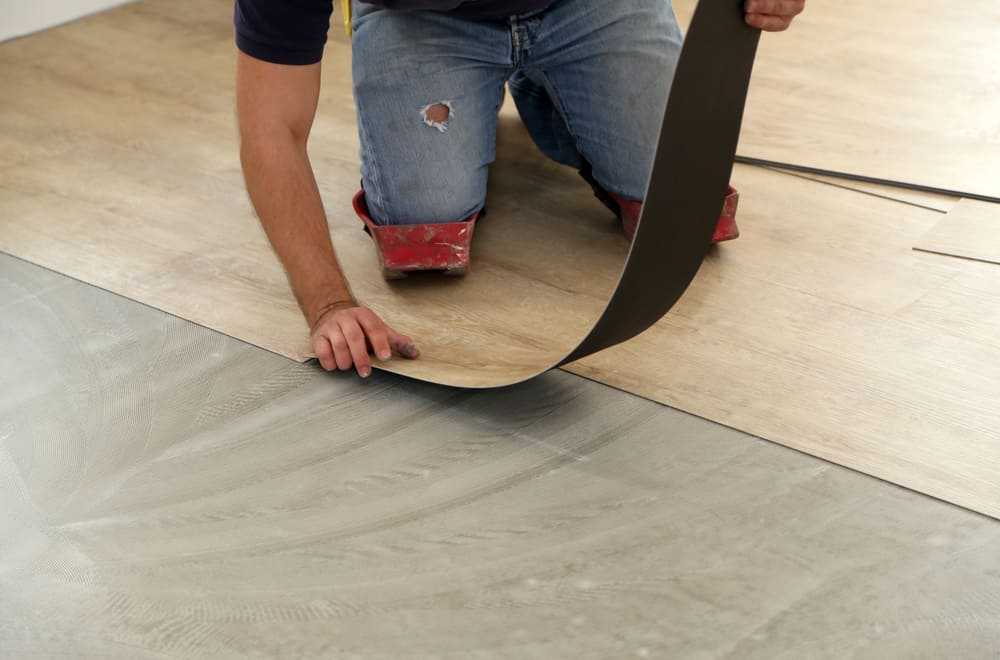
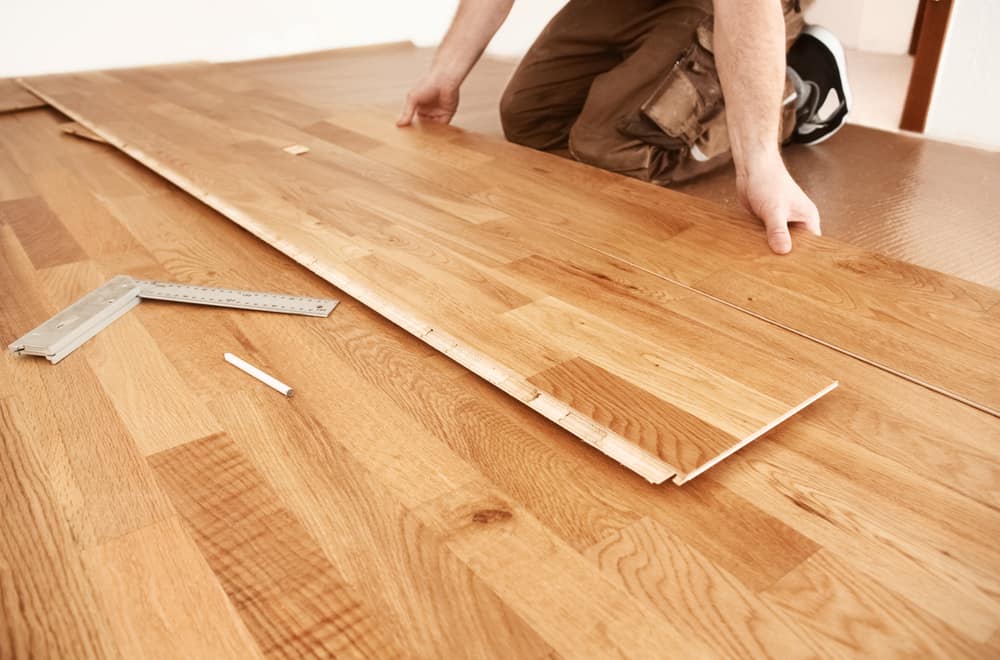
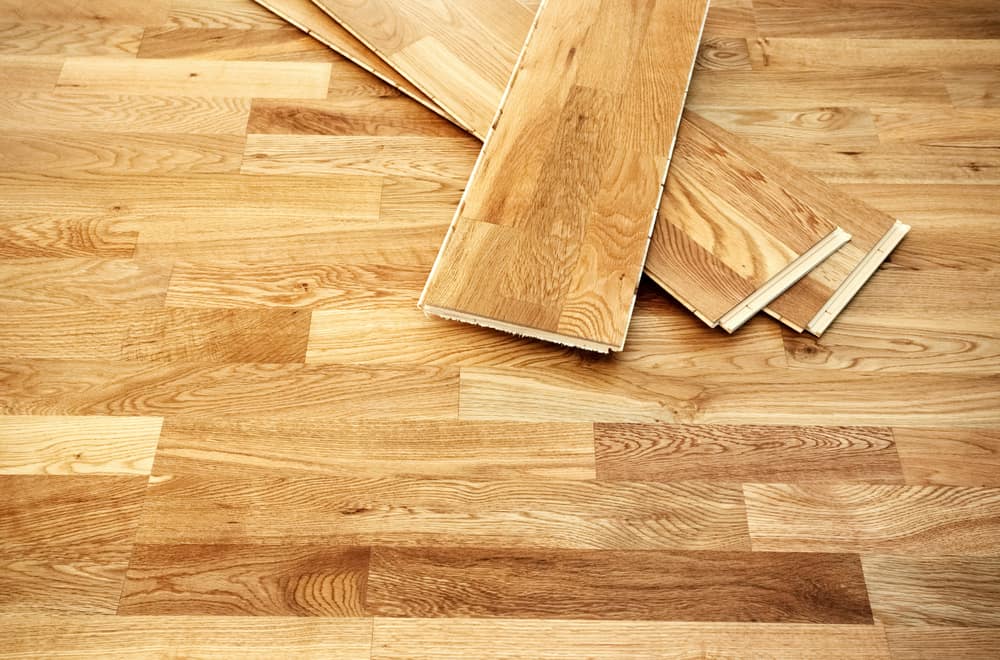
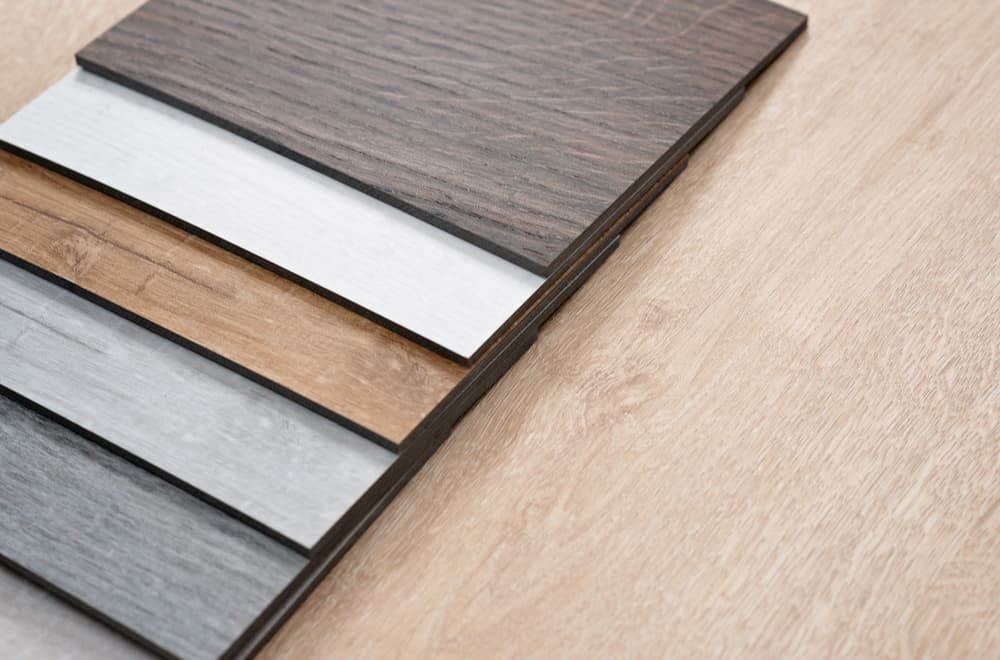
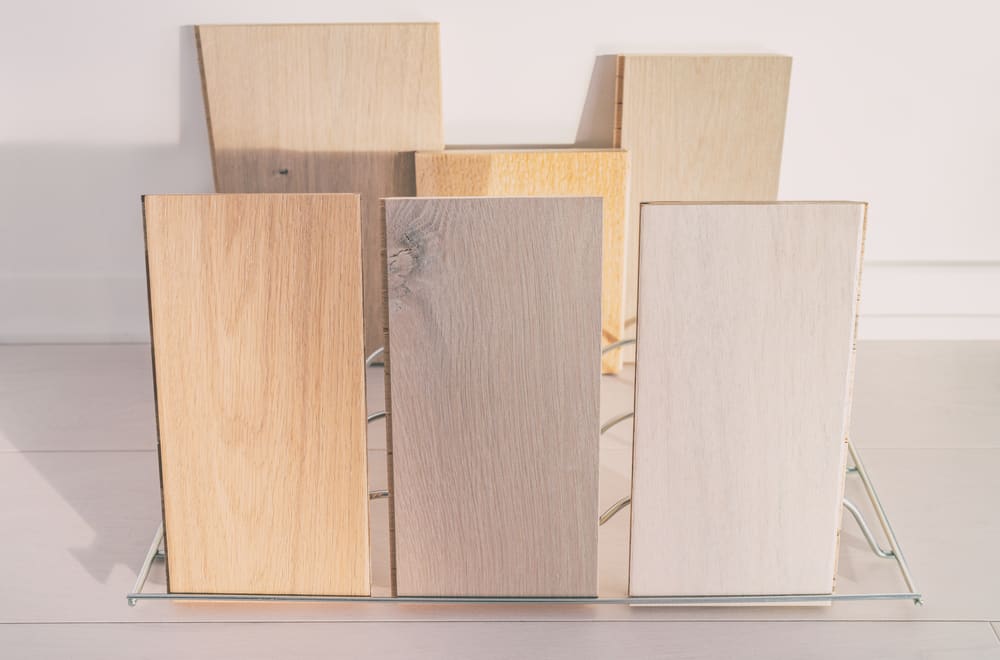

BEST NFORMATION FOUND IN MY RESEARCH.